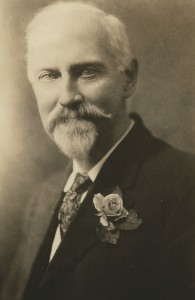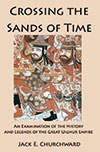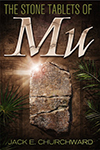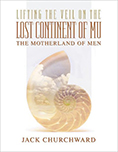
James Churchward (1851-1936)
During my research into the life in theories of my great grandfather James Churchward, I have had the opportunity to interact with many different people with wide ranging views. For some, his theories are blasphemy to their beliefs, deserving of vitriolic screeds and condemnation. For others, his words require the solemnity of scripture when referenced and then there are all the folks in between the two extremes.
Originally, my predilection was to believe his theories were bunk; however, since I had yet to read or research what he wrote, I was just parroting what someone else said. I looked into his sources and found the proof I needed; but it didn’t answer the question, “Why after 90 years or so were his theories still being discussed and his books sold?” This part of the quest took longer and maybe a definite answer will arise eventually, but I have some thoughts.
Some of the naysayers would respond the reason is racism. The author’s late 19th century mindset and approach is the evidence. I addressed this some years ago. If the reader weighed 90 years old works against today’s enlightened mindset, of course you can find something to complain about. James isn’t alive today to modify his theories according to the latest evidence or defend himself. His writings are water under the bridge. The few passages where the critics attack his works actually point out the weakness of their argument (and James.) The critics attack his supposition that the white “Maya” colonized the planet and brought civilization to the rest of the world’s people. James really wrote that all people were from the lost continent of Mu. They all enjoyed a high level of civilization and were educated, fed and clothed in a peaceful society. Where did the people not on the continent of Mu come from? If everyone came from Mu, who did the white “Maya” conquer and “civilize”? Likewise, when James asserts the Mongols wiped out the white “Maya” in Central America – “Where did the Mongols come from?” I really don’t believe it is racism maintaining the continued promulgation of James Churchward works. I’ve met James followers of all colors and creeds and none of them discussed an opinion where his works were abhorrent or overtly racist
On the other hand, looking at it in context, James was in his early 70s when he started speaking on WNYC in 1924. Along with his other speaking engagements and written articles, James began to gain a following. In 1926, his first book was published as fiction, according to his biographer. The next printing of his books coincided with the Great Depression and flew off the shelves. Income from book sales would have been helpful for the aged retiree. The underlying message in James books is humanity had a common origin. Together, they built a great civilization with no strife. People lived in peace and harmony. AND together as humans, we can accomplish it again. For many people, even today, that is an exciting possibility and provides hope for a brighter future. I can’t find fault with someone looking for a brighter future.
So, the bottom line is there is a myriad of opinions of my great grandfathers works. As far as I’m concerned, neither extreme should be counted as anathema and people should not be judged according to their reading list. The over-the-top rhetoric attempting to silence alternate viewpoints drives people apart and is in direct opposition to James’ ideal. Such harsh pronouncements deter open and honest discussions where minds can be changed, and common ground established.
This is not a defense of James writings; it is a defense of everyone’s right to think for themselves according to their conscience. James Churchward was right on one point; human beings are all one big family. I’m all for a greater understanding of this concept.








 RSS - Posts
RSS - Posts